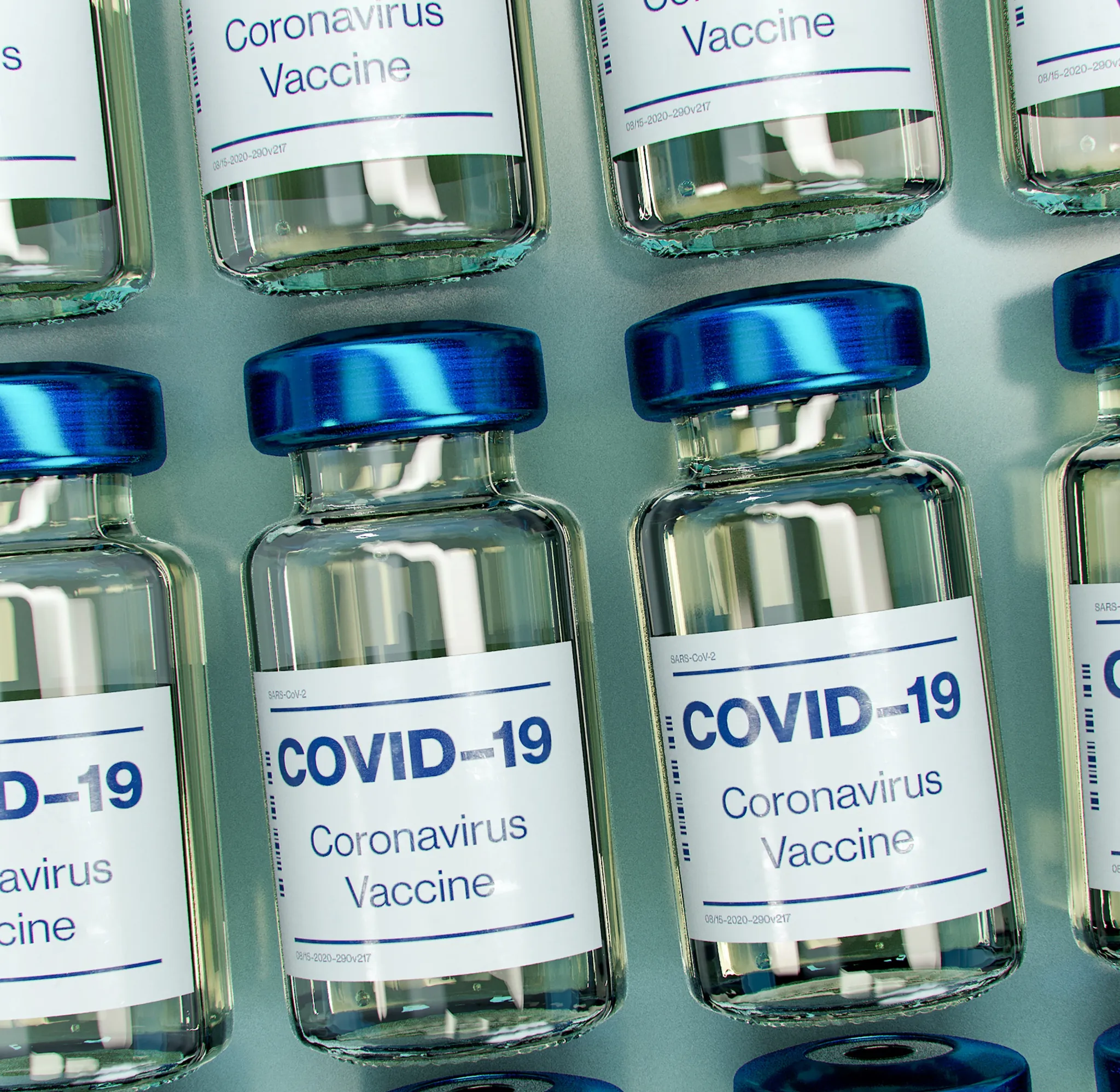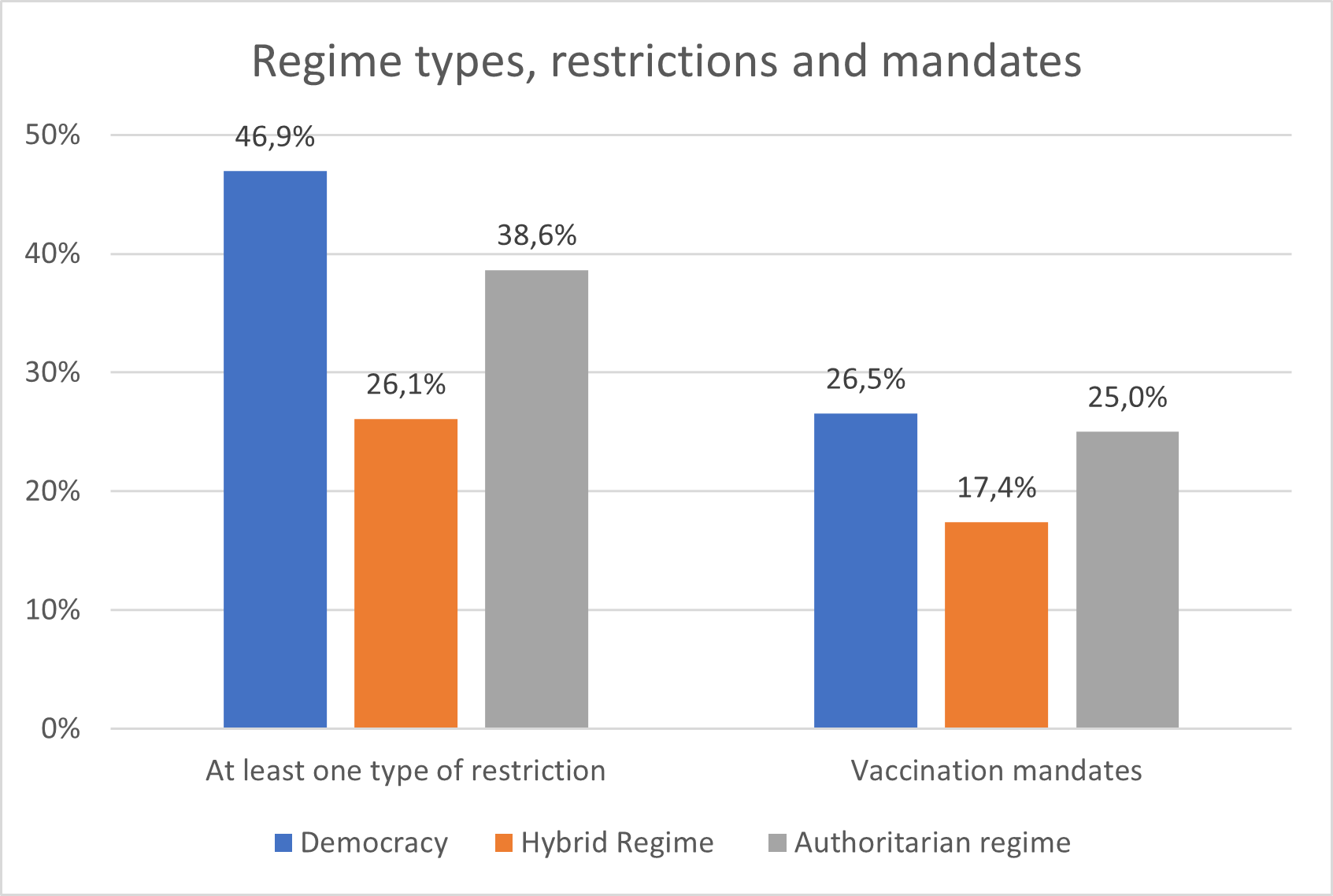Restrictions for the unvaccinated: the next democratic dilemma in the Covid-19 pandemic

Even as Covid-19 vaccines become more widely available, many countries have struggled to increase their vaccination rates. Only three countries in the world currently mandate vaccination for the entire population: Austria, Tajikistan and Turkmenistan (1.8 per cent of the countries covered by International IDEA's Global Monitor of Covid-19). More common is mandatory vaccination for certain groups of people (for example, health and service sector workers), which have been implemented in 38 countries (23 per cent).
There are also increasingly common measures that simply restrict access to public spaces for the unvaccinated. In fact, French President Emmanuel Macron recently said that he was hoping to "piss off the unvaccinated" by increasing restrictions and applying pressure on the unvaccinated.
Such policies and mandates have been met with anger and dismay in some quarters, but are they justifiable with reference to fundamental principles of democracy and human rights? While the science is clear that vaccinations are the best and most efficient option for ending the pandemic, what are the risks of such restrictions on the health of a democracy?
Excluding the unvaccinated from public life risks deepening already existing divisions. In the US, for example, unvaccinated people often have a lack of trust in government. There is also evidence that lower income individuals are less likely to get vaccinated, and there are racial disparities in rates of vaccination. In other countries, vaccine hesitancy overlaps with religious beliefs and mistrust of western governments.
Also worrying is the fact that restrictions that were meant to be temporary have been extended or re-imposed, sparking fear of creeping authoritarianism. In the US, the Supreme Court is currently deciding whether the Biden Administration is overstepping in its decision to mandate vaccination or testing in private companies.
Despite these concerns, opinion polls in Europe show that in the last months, mandatory vaccination is supported by a majority of respondents. For example, in Austria, 60 per cent of the population supports mandatory vaccination. Moreover, in Germany, where a 2G policy (only allowing the vaccinated and those who have recently recovered from Covid-19 to access certain venues) has been implemented, 69 per cent of the population is in favour of a universal vaccination mandate. In the US, almost 70 per cent of the population supports a vaccine mandate.
How should governments balance respecting democratic freedoms with protecting public safety? Thus far, it seems that many regimes are making the decision to prioritize public safety. In fact, 46.9 per cent of all democracies have implemented at least one restriction for unvaccinated people, whereas 38.6 per cent of authoritarian regimes and 26.1 per cent of hybrid regimes have implemented them.

Yet another option is to use “Covid passes” to restrict access for those who are unvaccinated and/or those who have not recently recovered from the virus and/or those who have not been tested recently. 41.2 per cent of all countries use Covid-19 documentation domestically in one way or another. Here, democracies are again more inclined to implement it: more than half of democracies have implemented Covid-19 documentation, whereas only around a quarter of both hybrid and authoritarian regimes have. In the European Union, even a centralized system of Covid passes was set up to open public spaces and to make travel between countries easier.
When taking into account that the rights and freedoms of a society as a collective should be protected in a democracy, introducing measures that can prevent health care systems from collapsing could be a way of maintaining the quality of democracy. The data from the Global Monitor shows that regimes of all types are trying to find a balance between restricting individual freedoms and ensuring safety for vulnerable groups of people. With the rise of 2G policies throughout Europe, the trend seems to be that in order for governments to ensure the safety of citizens, the deepening divisions in society between the vaccinated and the unvaccinated are apparently accepted as a proportional consequence.




